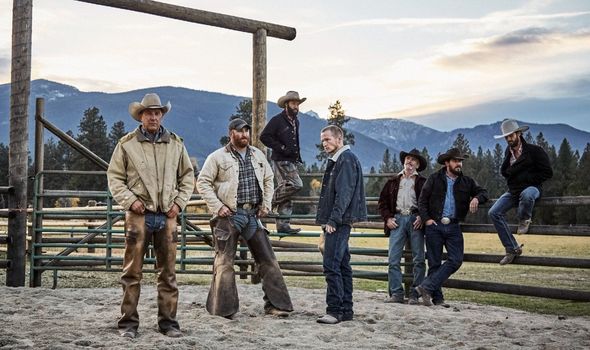
The Dust and Dividends: When Yellowstone's Prequel News Divides Its Faithful
The sprawling Montana landscape, rendered with a painter's eye and a poet's heart, has become more than just a setting for Yellowstone; it’s a character, a promise, and now, for many fans, a source of profound narrative tension. Taylor Sheridan’s modern Western epic, initially a cable sleeper hit, exploded into a cultural phenomenon, birthing a universe of prequels that delve into the storied, blood-soaked origins of the Dutton family. But with each new announcement – the latest whispers of another historical installment like "1944" or similar continuations – a palpable rift widens within the fandom, splitting the loyal viewers into camps as distinct as cowboys and conservationists.
On one side stand the indefatigable enthusiasts, the "more is more" contingent, who greet every new prequel announcement with unbridled excitement. For them, each historical vignette, be it the brutal trek of 1883 or the Jazz Age perils of 1923, is like unearthing another invaluable piece of a grand, complex puzzle. They revel in the expansion of the Dutton legacy, finding rich context and deeper understanding in how the family fought, bled, and sacrificed to carve out their dominion. The opportunity to explore new eras, new challenges, and new characters within the familiar framework of land, family, and fierce independence is a narrative gold rush. These fans see Sheridan not just as a storyteller, but as a myth-maker, weaving a generational saga that echoes the very formation of America itself. They crave the grit, the stunning cinematography, and the morally ambiguous heroism that defines the universe, believing that more stories only enrich the existing tapestry, adding layers of meaning to John Dutton's relentless defense of his ranch.
Conversely, a growing chorus of skeptics and weary loyalists view the seemingly endless stream of prequels with a jaundiced eye. Their apprehension stems from a fear of dilution, of stretching a compelling narrative so thin it loses its potency. They worry that what began as a captivating exploration of modern Western life, steeped in tradition and conflict, is rapidly devolving into a formulaic cash cow. The whispers of "franchise fatigue" are loud among this group, who point to the diminishing returns of other over-extended cinematic universes. There's a concern that the constant unveiling of new ancestors and their struggles will ultimately cheapen the impact of the core Yellowstone narrative, making the original show's high stakes feel less unique, less monumental.
This division isn't merely about quantity; it's deeply rooted in the very nature of storytelling. For the "less is more" faction, the magic of Yellowstone and its early prequels lay in their focused intensity and the carefully crafted emotional investment in a finite number of characters. They feel that each new prequel, while perhaps independently strong, adds a cumulative weight that threatens to collapse the narrative scaffolding. They question whether every historical gap needs to be filled, or if some of the Dutton mystique was better served by leaving certain origins to the imagination. The repetitive themes – land disputes, family loyalty, violent retribution – while initially compelling, begin to feel less like echoes of history and more like narrative re-runs when presented in rapid succession across multiple decades.
Moreover, the uncertain future and protracted ending of the flagship Yellowstone series itself casts a long shadow over the prequel excitement. For many, the primary concern remains the dignified conclusion of John Dutton III's story. The perception that resources, attention, and creative energy might be diverted to new spin-offs before the original narrative arc is satisfyingly resolved fuels resentment. It’s a classic dilemma: does expanding the universe enhance the core, or does it drain its lifeblood?
Ultimately, the divided fan base reflects the complex relationship between creators, content, and consumption in the age of streaming. Both sides, despite their clashing opinions, share a fundamental love for the Yellowstone universe and its unique contribution to television. The enthusiasts believe in the inexhaustible wellspring of stories within the Dutton lineage; the skeptics fear that wellspring is being over-tapped, risking its eventual drought. As the dust settles on each new prequel announcement, one thing remains clear: the legacy of the Duttons, on and off screen, continues to be a battleground of passion, loyalty, and deeply held beliefs about the very art of storytelling.
